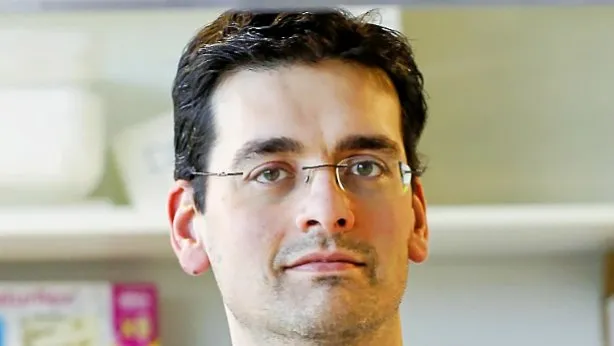Rubén Nogueira, a researcher at the University of Santiago de Compostela, has presented a study whose main hypothesis is that the P63 protein could be able to directly regulate insulin signage and glucose metabolism in the liver.
Rubén Nogueira Pozo (Vigo, 1977), from the University of Santiago de Compostela, focuses its research efforts on two large lines.In one of them investigates how the brain, and more specifically the hypothalamus, directly regulates metabolism in peripheral organs, focusing especially on fat and liver.In another line studies paper in widely known protein metabolism in the world of cancer, such as P53 and P63.
The role of P63 is unknown in glucose control, but it is a tumor suppressor and the consumption of glucose in the tumor is anomalous "
"So far, practically nothing is known about the role of P63 in glucose control and insulin signage. We know that P63 is a tumor suppressor, and that tumor cells have abnormal glucose consumption," says DMNogueira, while describing that "we also know that some tumor suppressiveResults were positive, the idea would be to design activators/inhibitors of P63 and see if these compounds could be used safely and effectively in type 2 diabetes models. "
A few weeks ago Nogueira and his team presented in a study what is the role of P63 in the control of the number of lipids that the liver stores."Specifically, what we observe in animal models is that the activation of P63 increases the number of lipids in the liver, that is, it causes having a fatty liver; while the inhibition of this protein decreases the fatty content of the liver,"Nogueira indicates, and adds that "excess lipids has a harmful effect on insulin signage, and therefore the hypothesis is that P63 could be able to directly regulate insulin signage and glucose metabolism in the liver."
Molecules are studying that act on different targets, so that their effect is more powerful than acting in one "
more intensity
Looking ahead to diabetes research, Rubén Nogueira states that there are currently several strategies for the treatment of diabetes."As for type 2 diabetes, which is where we work, there are different pharmacological options that work relatively well in patients. Right now one of the options that are being studied with more intensity is the design of molecules that act on differentTargets, so that its effect is more powerful than acting on a unique target that is what current compounds do.Some of those compounds are already being tested in clinical trials, "he says.In his opinion, if the efficacy and safety data are good, these molecules could have options to be used in the clinic improving what already exists in the market.
For Rubén Nogueira leave one country and see how it works in another laboratory and how another R&D system works is very positive and enriching for any researcher.
There are very good Spanish groups working in diabetes, but it is difficult to compete in front of other countries that have many more resources "
"The big problem in Spain is that this flow is mainly in one direction: many Spanish researchers who leave and almost any foreigner or Spanish who have leftPossibilities of returning, "says Nogueira." There are very good Spanish groups working in diabetes, but it is difficult to compete with other countries in Europe or the United States, which have much larger resources than Spaniards. "
In short, Nogueira does not believe it is strictly necessary to go outside Spain to investigate at first diabetes, but it does facilitate things, because the number of leading groups here is remarkably lower than in other countries."Our society and by extension our rulers must raise awareness that doing level research in any area means having a much greater return than invested. If not, countries with a much stronger economy than the Spanish would not have opted for research, even in the toughest years of crisis.
Acknowledgments to perseverance
Rubén Nogueira became a doctorate in biology at the University of Santiago de Compostela in 2003. Its main research lines attend to the regulation of energy homeostasis through different metabolic signals such as leptin, calelin, resistin or adiponectin.He has been recognized with various intentional renowned awards such as the Molecular Journal Endocrinology Prize, awarded by the European Endocrinology Society, in Rotterdam, in May 2011;The FSE in research endocrinologists, awarded by the Spanish Society of Endocrinology and Nutrition (SEEN), in Granada, in May 2013;the young Sebbm-Biotool researcher award, awarded by the Spanish Society of Biochemistry and Molecular Biology (SEBBM), in Valencia in September 2015;European Foundation for the Study of Diabetes (EFSD) Rising Star Felowship, in Stockholm in September 2015, and the Astra Zéneca Foundation Award Youth Researchers, in the category of type 2 diabetes and obesity, received in Madrid in September 2016.
"Like many other researchers, I was always interestedDifficulties, I loved it.I have been able to choose where to continue my research career.


